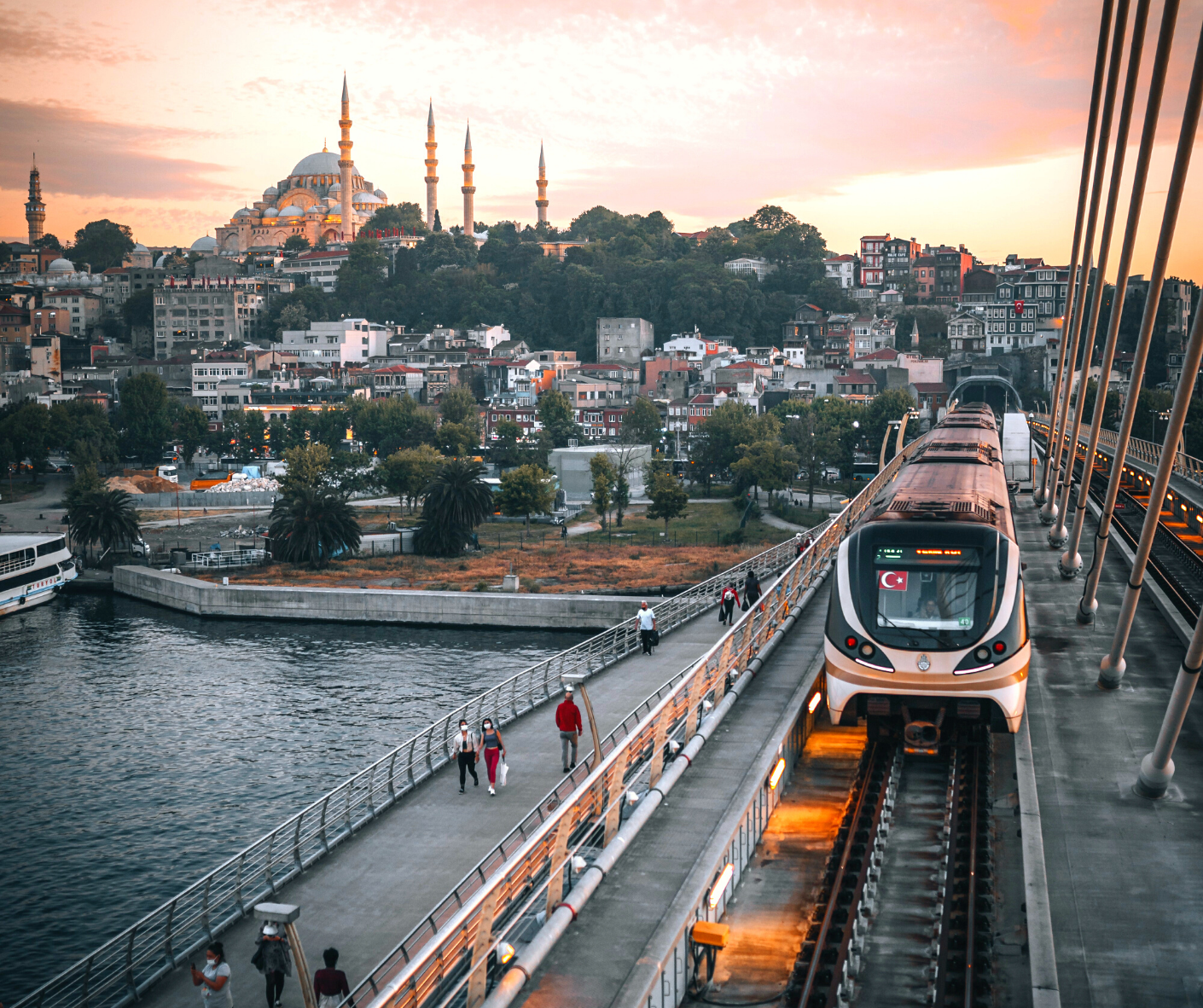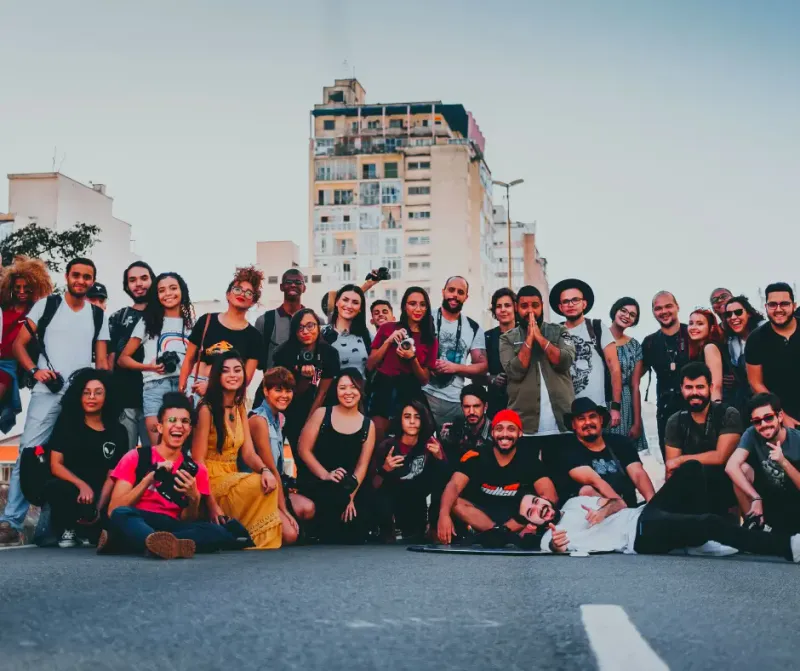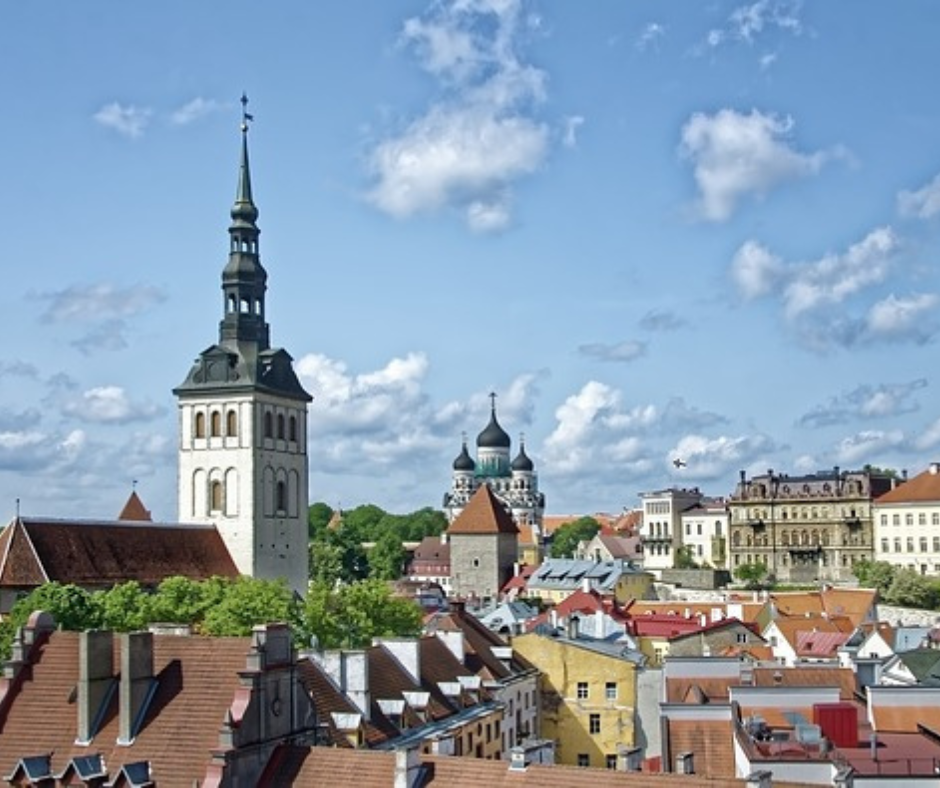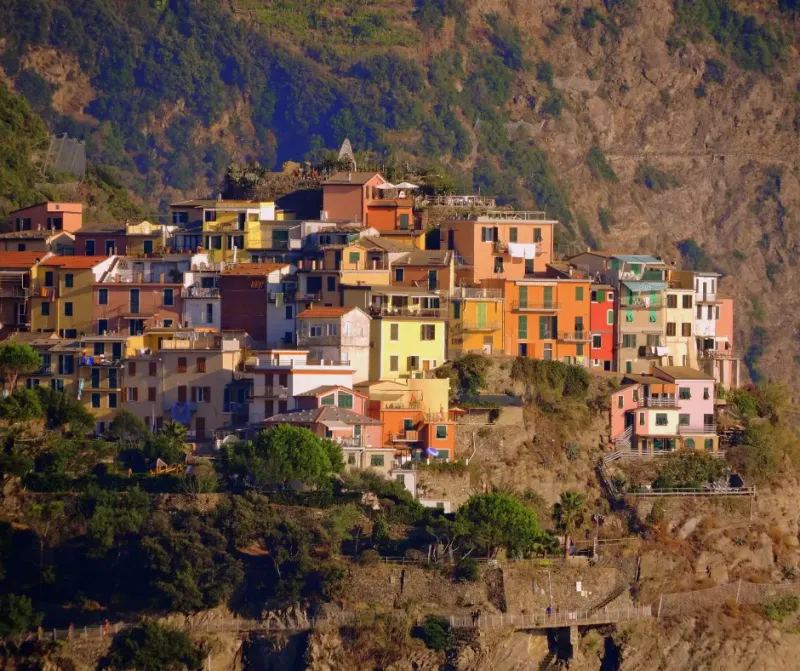Turkey - A country located in Asia as well as in Europe, influenced by Greek-Roman, Ottoman, Anatolian, and Islamic cultures is the gateway from Western Oxidant to Eastern Orient. Located on the silk road, Turkey was part of old international trade routes that connected the Chinese Empire with the European kingdoms.
Today's Turkey lies mainly on Anatolia, a large peninsula also known as Asia Minor, and connects the continents of Europe and Asia. It links the Balkans of Southeast Europe with transcontinental countries such as Georgia, Armenia, and Azerbaijan.
From Santa Claus to Turkish coffee, Turkish baths, and the invention of the toilet flush, Turkey is the country of humble Saints, clever inventors, and famous statesmen. Turkey offers a diverse range of ski slopes, white sandy beaches, turquoise coastlines, buzzing metropolitan cities, and remote hill tribe village life. Check out why you should have Turkey on your travel list.
🇹🇷 Entry requirements for Turkey
- Visa: You need a valid visa to enter Turkey. Nationals from these countries do not need a visa: All EU citizens, Brazil, Chile, Japan, New Zealand, Russia, Switzerland, United Kingdom.
- Form of entry: This document must be filled out 4 days before traveling to Turkey.
- Covid test: If you are not vaccinated, you need proof of a negative Covid test result prior to your travels. Negative PCR-covid test within 72 hours or antigen test 24 hours before boarding or entering the country.
- Vaccination: If you are fully vaccinated or recovered, you do not need to present a negative Covid-test result.
Please note that travelers do not mandatorily need travel health insurance to enter Turkey. However, if you want to be covered for your trip to Turkey, check out Genki's health insurance and tick this off your list.
🌱 Travel health insurance for Turkey
🏡 How to find a place
- Airbnb: Apartments on Airbnb within cities like Istanbul or Antalya have reasonable prices as the cost of living is generally lower than in other European countries. Modern-styled apartments will start at 800 Euro a month within favorite areas.
- properstar: For renting apartments in bigger cities, you can check listings on properstar. The site offers rentals from 300 Euro a month to high-end luxurious stays.
- Facebook groups: If you have a bit more time, monitor groups like Istanbul Apartments/Rooms/Houses for Rent/Sale for deals and short-term options.
✈️ How to get to Turkey
- Plane: You can reach Istanbul via direct flights from 308 destinations worldwide spread through 117 countries. Additionally, Turkey offers 45 domestic flights to connect national cities by plane.
- Istanbul: Arriving in Istanbul at the Attatürk International Airport, you can take a taxi for around 35 Euro to the city center. The ride takes about 1 hour. The cheaper option is taking the bus which takes about 1.5 hours for only 5 Euro. - Bus: Flixbus or Blablacar as well as several Turkish bus companies, run big, comfortable buses to and from Europe weekly.
- Train: What was once mainly used for the famous Orient Express is today mainly used by Interrail. With the Interrail Global Pass, you can travel from London to Istanbul with stops in Paris, Munich, Zagreb, Belgrade, and Sofia. You can hop on and off 7x within 1 month. Standard prices for the Interrail Global Pass start at 251 Euro.
🚌 Public transport
For public transport in Istanbul, it is a good idea to purchase the Istanbulkart, which provides access to boats, the subway, trams, and funiculars (cable cars). Istanbulkart is a smart card with contactless payment, super handy, and easy to use. The card costs 32 Euro and is valid for 180 rides.
- Metro: In Istanbul, you find the second oldest subway system in Europe, the nostalgic Tünel subway. A single metro ticket is 0.70 Euro.
- Tram: Istanbul provides a tram service on the European side of the city. Between Tünel Square and Taksim, you can ride with the Nostalgic Tram (T2) which was built in the early 19th century.
- Ferry: There is a total of 48 piers and 22 public ferry lines along the Bosphorus.
- Cable car: You can find 2 cable car lines in Istanbul which are TF1 for route Maçka to Taşkışla and TF2 for Eyüp to Piyer Loti.
- Dolmuş: Dolmmus is a shared minibus, in which you can also stand while driving, or yellow shared taxis that only have seats. Simply wave your hand or get on at the station.
- Taxi & Uber: Although taxis are available almost in every bigger city, it is advisable to use BiTaksi App or Uber App, as the drivers are more reliable and you save yourself from scams.
🏘 Where to stay in Istanbul
In general, it is worth considering staying in an apartment or condo which offers security services.
- Besiktas: This district is located on the European side of Istanbul, at the entrance of the Bosphorus. Besiktas is famous for its vibrant and colorful daily life in the many bazaars, the fish market, shopping centers, its historical buildings, the football club, and seaside recreation as well as gastronomy and hospitality. You find many students here. The most livable neighborhoods within Besiktas are Bebek, Levazim, Akat, Arnavutkoy, Kurucesme, Levent, and Etiler. The average monthly rental price is between 550 and 850 Euro.
- Sariyer: Another district on the European side of Istanbul is Sariyer, which borders the Besiktas district. A nice neighborhood to live in is Tarabya, an area with many middle-class residents and families. Although Tarabya is close to the city the vibe is more residential than urban. You can find monthly rentals here for around 1,000 to 1,500 Euro when searching locally or in Facebook groups.
- Şişli: This is a great place for a vibrant and energetic nightlife scene, and this is where you will find most of the students in Istanbul. It is a very trendy and hip area that is popular with young people. There are many bars and restaurants that are affordable. Rentals here are between 500 and 900 Euro a month. Şişli is opposite Kadikoy, a district on the Asian side.
- Kadikoy: Located on the Asian side of Istanbul, this district was once listed as one of the coolest neighborhoods in the world by TripAdvisor. Kadikoy offers urban spots such as bars, restaurants, and cafés opened in recent years. Expats mostly live in Moda Seaside which is known for its artsy, vintage, and non-conformity-lifestyle. You can find apartments here for monthly rent starting at 800 Euro.
🧑🏻💻 Where to work from in Istanbul
Coworking spaces
- Impact Hub: Within a 2-minute walking distance of Sanayi metro station, Impact Hub Istanbul is a member-based coworking space, located in the heart of Istanbul’s business district Sanayi. Basics like high-speed wifi, 24/7 access, air conditioning, and ergonomic chairs are included in the price of 80 Euro a month for a flex desk membership.
- Kolektif House: With several locations within Istanbul, this coworking space offers different memberships, from community-only to full-service business packages. Prices vary and depend on your needs. It is best to contact them and ask them for prices.
- Kamara: Kamara is yet another coworking and office rental site with offices in Kadikoy, Levent, and Sisli on the European side and Beyoglu, Bostanci, and Altunizade on the Asian side, to mention a few. Because their spaces are smaller and one-of-a-kind, they can provide more personalized coworking and office renting choices rather than a more sociable setting. Memberships start from 30 Euro to 110 Euro a month, depending on the chosen location.
- Workinton: Turkey’s largest coworking chain, has 12 locations in Istanbul and has expanded its coworking to other Turkish cities such as Ankara, Izmir, and Bursa. Each Workinton location is uniquely adorned, but strong importance is placed on professional competence and solace. Membership starts at 65 Euro a month.
Coffee shops
- Espressolab: You will find Espressolap in Bomonti, Taksim Tüneöl and Kadiköy. All locations have plugs, work-friendly tables, and stable wifi. The cafés provide freshly roasted coffees and meals combining Turkish and European dishes.
- Homeroom: If you are looking for a cozy outdoor area while working, Homeroom could be your spot. You get breakfast, salads, and other snacks as well as good working conditions.
- Latife Türk Kahvesi Galata: This café also has a garden and enough power plugs to work with. The internet is reliable and you find on the menu homemade Lemonade, coffee specialties, and pastries.
- Mavra Café Design Workshop: Another laptop-friendly café with reliable wifi, many plugs, and different seats from couches to armchairs. The nearest metro station is Sishane.
- Cafe Note: If you’re in need of a breath of fresh air and want to take an outside coffee break in Istanbul, then head to Cafe Note. The large outdoor terrace in the front is a great place for a relaxed work session and watching people passing by.
- Müz Botanik & Kahve: If you wouldn't know better, walking past Müz you’d think it was an ultra-trendy plant and decor store. But take a gander inside and you’ll see this is actually a coffee shop with baristas serving hot beverages alongside some plant friends. With fast internet, this place is good for a short time working.
🏘 Where to stay in Antalya
- Liman Area: The Liman area is located on the seashore between the cargo port, Hurma district, and the Bogachai River. There are many cafés for every taste, a bazaar that is open every Tuesday, a municipal beach, and several beautiful private beaches. Liman is 2 km southeast of Antalya.
- Lara Beach: The coastal Lara Beach neighborhood is a very prestigious area with many cafés, a shopping mall, and a promenade. You can go for long walks enjoying the view across the Bay of Antalya with the mountain range in the background. Lara is a popular spot for expats and short-term foreigners and you find a big international community here. Sandy beaches and the warm Mediterranean waters are a big lure. The distance to Antalya city center is 5 km.
🧑🏻💻 Where to work from in Antalya
Coworking space
- Work c: Picture yourself, drinking Turkish coffee and enjoying the mountain view while being productive. The space comes with stable internet and ergonomic standing desks. Work c offers several community events and a yoga studio for all the digital yogis out there. Monthly memberships start at around 70 Euro.
Coffee shops
- Coffee’s: It can be tricky in Antalya, to find a café with a fast and reliable internet connection. Coffee is one of the rare spots. This café also has an outside area to work from.
🏘 Where to stay in Ankara
While the capital certainly deserves an honorable mention, especially for its pristine roads, impressive buildings, museums, and lush parks, it is situated inland in Anatolia and does not have a significant body of water, which can be a major drawback for digital nomads. Those who are looking for great networking opportunities can prefer Ankara. Monthly rents are around 500 to 800 Euro.
🧑🏻💻 Where to work from in Ankara
Coworking space
- CoZone: A collaborative workspace that offers an environment suitable for new-generation businesses, employees, and collaborations to bring initiatives, international companies, and freelancers together. Membership starts at 100 Euro a month.
Coffee shops
- Aylak Madam: A lively and young café with colorful walls covered in framed art, Aylak Madam is cozy in the winter, with plenty of comfy armchairs and breezy in the summer, with a large outside seating area. Perfect for work while you get your lunch.
- Cafemiz: The word stunning would be appropriate to describe the décor at this very popular café, where floral patterns and shiny chandeliers are just part of the atmosphere. In the summer, Cafemiz’s garden is always full of people enjoying their coffee and some sweets while pretending to be focused.
🚊 How to travel around Turkey
- Bus: There is an extensive bus network in Turkey. Busses connecting remote towns in the countryside will stop every couple of hours for people to eat, pray, smoke, and use the bathroom. Check out Havas Bus company. As smaller the town, as more remote the village, it is possible that you need to travel in a dolmus, a local minibus. Check out Pamukkale, Varan, and Kamil Koc (Flixbus) for bus connections within the major cities.
- Car rental: You find an extensive road network in Turkey, connecting the major cities through modern highways. Car rentals are around $50 to $90 per day and international companies, such as Europcar, Avis, and Budget. Traffic and parking in cities like Istanbul or Ankara are bad and it happens that you find some local drivers' styles aggressive and unexpected.
- Train: Traveling by train is not very common among international tourists as traveling by train takes time and connections are limited. However, the Turkish Railway Company connects Istanbul and Ankara, Izmir, and as well as Ankara and Kars. The latter connection is an Instagram-friendly overnight trip by Doğu Ekspresi and it is advisable to purchase tickets in advance.
- Plane: Almost every place in Turkey is connected back to Istanbul or Ankara. About 50 Turkish cities offer domestic air travel. Check out the low-cost carrier Pegasus Airlines.
🎖 Must see
- Hagia Sophia Mosque: Maybe religion is not your cup of tea, however, Hagia Sophia is a breathtaking architectural masterpiece and one of the highlights in Istanbul. This 1400-year-old Byzantine cathedral has served as a cathedral, a mosque, and is now partially a museum. As it is still a running mosque, please have in mind not to visit during prayer times which are held 5 times a day. Before entering the building, it is mandatory to take off your shoes and cover your knees, shoulders, and arms. As a woman, you also have to cover your hair. Together with the Blue Mosque, the Hagia Sophia is located in the Sultanahmet area, in Istanbul's old town.
- Blue Mosque: Officially called Sultan Ahmed Mosque, the Blue Mosque is another architectural beauty not to miss out on. The entrance is free. As there are still praying provided 5 times a day for the religious folks, you should schedule your visit in between those prayers. You will have the same rules for entering as at the Hagia Sophia. If you need to cover your hair, you can borrow scarves at the entrance.
- Grand Bazaar: With 22 entrance gates and more than 58 alleys, the Grand Bazaar is a shoppers' paradise. The colorful covered labyrinth provides shops as well as Hamams, Mosques, restaurants, and cafés. In total, the Grand Bazaar hosts more than 4,000 shops. The main gate is called Beyazit and is just across from the Beyazit tram station.
- Ephesus: Once a Greek city, Ephesus today is a UNESCO World Heritage site with well-preserved ruins. The ancient city is about 9 hour car drive distance from Istanbul and is located in Izmir province. Ephesus is open to visitors every day of the week and tickets cost 11 Euro.
- Pamukkale: Google Cotton Castle and you are inspired on where to travel next. Located in southwestern Turkey, Pamukkale is an area with mineral white forests of petrified water, a series of terraced hot pools, and numerous waterfalls. From Istanbul, you take a flight to Denizli Çardak (DNZ) and then go by airport shuttle to the center of Denizli. There you can easily take a Dolmuş (shared taxi) which departs every 20 minutes to Pamukkale.
- Cappadocia: This stunning area is Turkey's most prominent wine-producing region. The capital, called Ürgüp is fascinating itself with all its underground churches and houses. Make long-lasting memories by taking a wine tour and a balloon ride.
💡 Good to know
- Internet: Turkey has an average broadband download speed of 27 Mbps and an upload speed of 6 Mbps. Please note that this includes the entire country and there are big differences between Istanbul and a remote village in the mountains.
- Climate: Turkey has a Mediterranean climate with hot and dry summers and mild and rainy winters. The Black Sea climate is experienced through cold summers and milder winters, with snowfall in the mountains.
- Safety: Turkey ranks 150 on the Global Peace Index which is not amazing but it depends on where you travel. Touristic areas such as Istanbul or coastal towns are considered to be safe for travelers.
- Cuisine: As you may have read in my article about Germany, the biggest Turkish population outside of Turkey lives in Germany. We have Turkish restaurants in all corners of the country and I love (love!) Turkish food. Here are some mouthwatering items: Köfte (meatballs), Manti (ravioli), Lahmacun (Turkish pizza), Pide (Turkish patty), Döner (döner?), Kumpir (potato dish), Baklava (pastry), Durum (wrap), Borek (spinach or meat puffs) and so much more.
- Turkish bread: Anatolia and Turkey are known as the breadbaskets of the world, and they produce a great variety of bread which Turkish call ekmek. Ekmek comes with every meal and its history dates back some 30,000 years.
- Hazelnuts: Turkey makes up 75% of the world's supply of hazelnuts.
- Turquoise: The word Turkey originates from the French word turquoise which means Turkish stone. The gemstone is one of the oldest in history and was used by Turkish soldiers. It was first brought to Europe (France) from Turkey, so Europeans referred to its origin as Turkey. However, turquoise gemstones were used by the Aztecs, the Egyptians, and the Chinese.
- Young population: Turkey has the youngest population in Europe. Around 15.6% of the population of 82 million people are between 15 and 24 years old.
- Turkish tea: Although Turkish coffee might be more popular with foreigners, Turkish love their tea which is served in delicate tulip-shaped glasses. It is strong and robust in flavor.
- Byzantium, Constantinople & Istanbul: In 324 the ancient city of Byzantium was renamed Constantinople, after the Roman emperor Constantine the Great, and is considered the cradle of the Roman Orthodox Christian civilization. From the 5th to the 13th century, Constantinople was the largest and wealthiest city in Europe. After being occupied by Romans, it later fell to the Ottomans in 1453 it became the new capital of the Ottoman Empire. In 1933 the city was renamed Istanbul and the capital moved to Ankara.
- Culture: Do you know Zazaki and Kurmanji? Two of more than 30 ethnic languages are spoken in Turkey, and the main language is Turkish.
- Santa Claus: Did you know that Santa Claus' birthplace is in Turkey? Born in the Turkish town of Patara, Santa Claus, whose real name was Saint Nicolaus, was a bishop and is the founding father of European Christmas traditions. Many countries celebrate him on December 6th.
🚧 What to avoid
- Shoes: You should never ever enter a mosque in your shoes. Same as in many Asian traditions, also Turkish traditions follow the barefoot-only rule.
- Disrespecting clothing rules: Entering a religious site, it is best to cover the head, shoulders, and knees.
- Disrespecting Atatürk: Turkish people are proud of their founding father Atatürk and this should be respected.
- Disturbing prayers: When you encounter a praying person, and that can happen often as the majority of Turkish follow Muslim traditions and prays ideally 5x per day, do not (never) obscure a person's view or walk past the praying person. If you do so, the prayer counts zero and the praying person must start all over again.
- Leaving leftovers on your plate: It is considered to be rude when you are a guest at someone's home to not finish your food. What is just the opposite in China and other Asian countries, leftovers are a big no-no.
- Taxi scams: As mentioned earlier, tourists are often victims of taxi scams by entering cars without logos. Only enter official taxis or use BiTaksi App or Uber App.
- Forget bargaining: Negotiating is part of the fun in Turkey and you should never buy something at the first-mentioned price.
🚴🏻♀️ How to stay healthy
Stay health
Trekking through the majestic mountains of Cappadocia, paragliding at the coasts of the Marmara Sea, or walking through the busy streets of Istanbul - Turkey offers a diverse range of activities to keep you fit, and enough cultural facets to revive your old hobbies and meet new people.
Stay active
- Walking through Istanbul: Why not combine fitness with sightseeing? Check out these walkable city routes in Istanbul including starting point, route, and endpoint, and plan your perfect day in Istanbul.
- Walking through Belgrad Forest: The recreation area is located north of Istanbul and accessible by metro and taxi, taxi, or your own car rental. The forest is a popular weekend getaway from the city and locals enjoy BBQs and picnics in the grass.
- Paragliding in Uçmakder: The old Greek town of Uçmakder is about 3 hour's drive west of Istanbul and offers moderate hiking trails, stunning views, and the perfect paragliding spot.
- Hiking the Lycian Trail: Actually, just from Kayakoy to Oludeniz, an 8 km walking trail starts at the main church in the village of Kayakoy and is labeled by yellow-red (also yellow-blue or yellow-green) signs which are sometimes hard to find. The starting sign is already hidden behind a tree, so the hike is like a scavenger hunt. Kayakoy is a ghost town that was abandoned after WWI and a severe earthquake.
- Hiking in the Uludağ Mountain: An easy 3-hour hike is the Bursa trail, a 7 km trail in the Bursa National Park. The best hiking time is between May and October.
Health risks
- Water quality: Yes, you can drink tapwater in Turkey although locals would probably tell you the opposite.
- Air quality: The air quality in Turkey is moderate.
⚓️ Long stay
There is no digital nomad visa available in Turkey.








